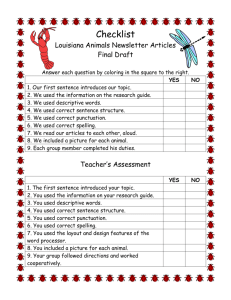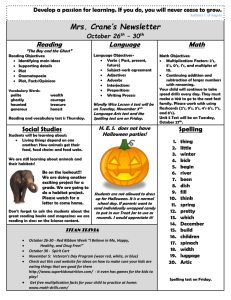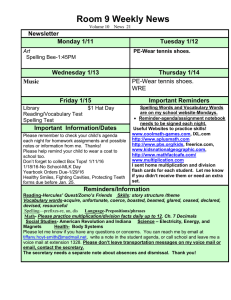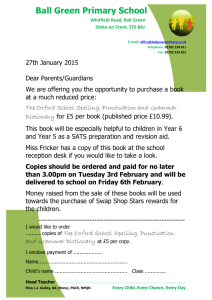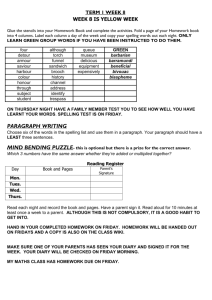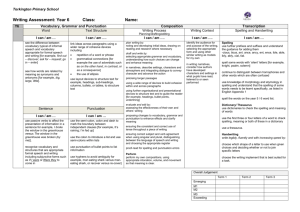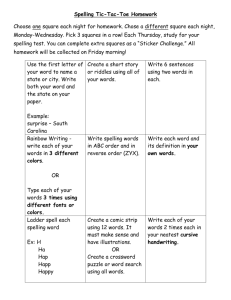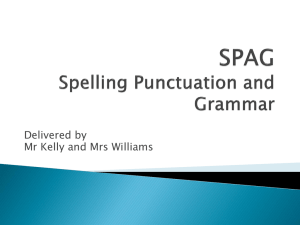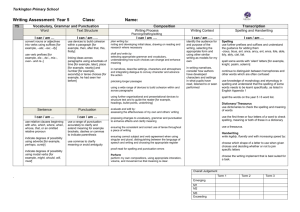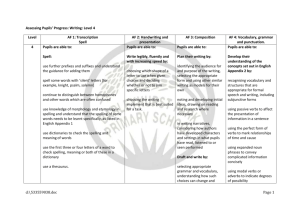Year 5 Willow Class Spring Newsletter
advertisement
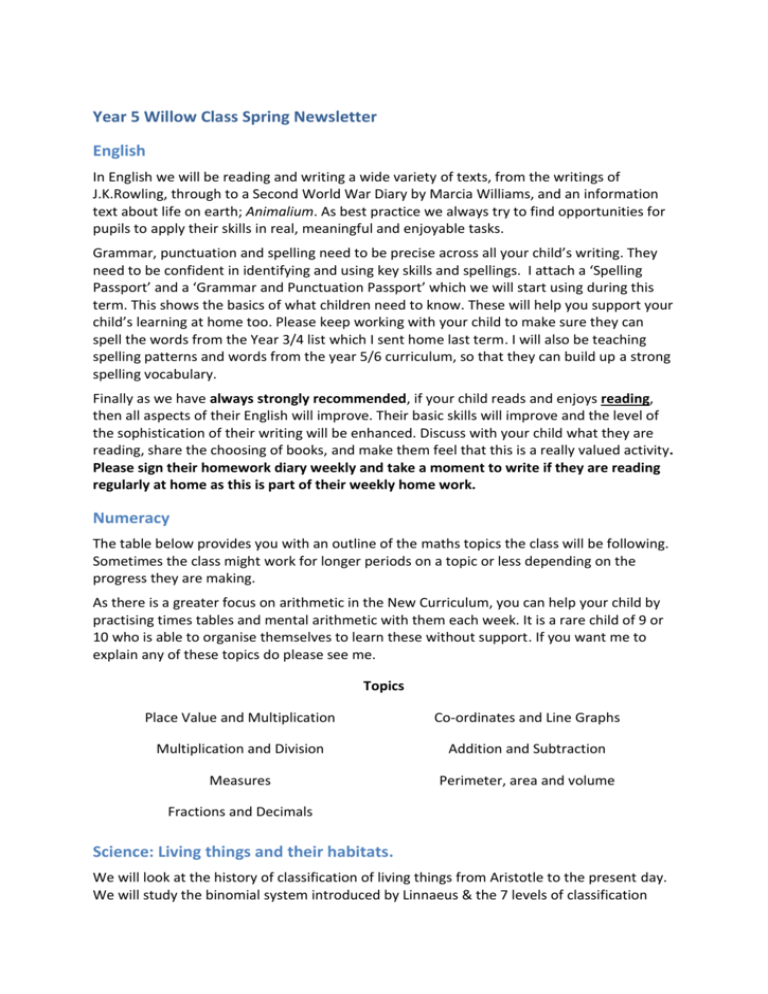
Year 5 Willow Class Spring Newsletter English In English we will be reading and writing a wide variety of texts, from the writings of J.K.Rowling, through to a Second World War Diary by Marcia Williams, and an information text about life on earth; Animalium. As best practice we always try to find opportunities for pupils to apply their skills in real, meaningful and enjoyable tasks. Grammar, punctuation and spelling need to be precise across all your child’s writing. They need to be confident in identifying and using key skills and spellings. I attach a ‘Spelling Passport’ and a ‘Grammar and Punctuation Passport’ which we will start using during this term. This shows the basics of what children need to know. These will help you support your child’s learning at home too. Please keep working with your child to make sure they can spell the words from the Year 3/4 list which I sent home last term. I will also be teaching spelling patterns and words from the year 5/6 curriculum, so that they can build up a strong spelling vocabulary. Finally as we have always strongly recommended, if your child reads and enjoys reading, then all aspects of their English will improve. Their basic skills will improve and the level of the sophistication of their writing will be enhanced. Discuss with your child what they are reading, share the choosing of books, and make them feel that this is a really valued activity. Please sign their homework diary weekly and take a moment to write if they are reading regularly at home as this is part of their weekly home work. Numeracy The table below provides you with an outline of the maths topics the class will be following. Sometimes the class might work for longer periods on a topic or less depending on the progress they are making. As there is a greater focus on arithmetic in the New Curriculum, you can help your child by practising times tables and mental arithmetic with them each week. It is a rare child of 9 or 10 who is able to organise themselves to learn these without support. If you want me to explain any of these topics do please see me. Topics Place Value and Multiplication Co-ordinates and Line Graphs Multiplication and Division Addition and Subtraction Measures Perimeter, area and volume Fractions and Decimals Science: Living things and their habitats. We will look at the history of classification of living things from Aristotle to the present day. We will study the binomial system introduced by Linnaeus & the 7 levels of classification used today. That means being able to describe how living things are classified into broad groups according to common observable characteristics and based on similarities and differences, including micro-organisms, plants and animals. Finally the children will be able to give reasons for classifying plants and animals based on specific characteristics. The children will also understand why classification is important and then use and create their own classification keys. History: Living in Britain during World War 2 The class will develop an understanding of why World War 2 started, and what is meant by the ‘Phoney War’. We will examine some major events leading up to the Battle of Britain, develop a familiarity with the location of the countries involved in first year of World War 2 and understand more of the German plans for invading Britain. The other aspect we will be covering is what happened to ordinary people and children during the war? We will learn about; the Home Front, Rationing, Digging for Victory, ‘Make do and mend’, Dad’s Army, the Land girls and the role of women during the war, the Blitz and the experience of evacuee children. We will also start to understand about use of propaganda and censorship, design war posters and make gas masks, identity papers, ration books and role-play home front scenarios. It would be fantastic if any families are able to offer objects or share personal stories Homework Extensions World War 2 offers children a fascinating topic for further research. This is particularly the case as within the class time we cannot possibly cover all aspects of the war. Pupils could….. Research the events leading up to, and involved in, the end of the war, Learn about the D-Day landing, The role of the French Resistance including women in the Resistance, Learn about the surrender of countries, The Battle of Berlin and death of Hitler, Consider the Paris Peace Treaties of 1947. Their writing could take the form of stories, letters, play scripts, diaries or even comic strips. Extending their learning does not need to be through writing. Making models, cooking food, sewing clothes, painting and drawing will always make the learning experience more real.
